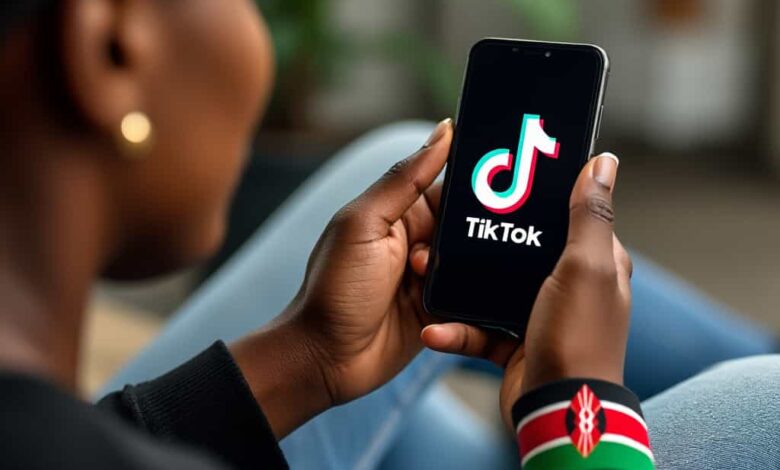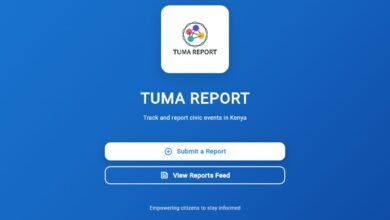
TikTok is making a last-minute plea to the U.S. Supreme Court to intervene in a federal law set to take effect on January 19, 2025, which would effectively ban the app unless its Chinese parent company, ByteDance, sells its stake in the platform. The popular social media app, used by over 170 million monthly users in the U.S., argues the ban violates the First Amendment and lacks substantial evidence to justify its national security claims.
The Federal Ban: A Timeline of Events
The legislation, known as the Protecting Americans from Foreign Adversary Controlled Applications Act, was passed earlier this year as part of a broader effort to curb foreign influence on U.S. digital platforms. The law mandates that ByteDance divest its ownership of TikTok to an American entity or face a ban. This means app stores, internet service providers, and cloud service companies like Oracle would no longer support TikTok’s distribution or functionality in the U.S. The legislation follows long-standing concerns from lawmakers about TikTok’s potential ties to the Chinese government.
The federal government asserts that ByteDance’s ownership of TikTok poses a “continuing threat to national security,” alleging that the app could act as a conduit for the Chinese government to access sensitive data or manipulate public opinion. However, TikTok disputes this claim, maintaining that U.S. user data is stored on Oracle-operated servers within the U.S., and content moderation decisions are made domestically.
TikTok’s Supreme Court Appeal
In its emergency petition filed Monday, TikTok asked the U.S. Supreme Court to block the law temporarily, arguing that it infringes on free speech rights and would cause irreparable harm to one of the most significant communication platforms in the country. The app requested a ruling by January 6 to ensure the law does not take effect on January 19 while the court deliberates.
TikTok’s legal team contends the ban would unfairly single out the platform, describing it as “one of the nation’s most popular speech platforms.” They argue the law tramples on First Amendment rights by preventing Americans from accessing the app, which is widely used for political discourse, commerce, arts, and community building. The company also criticized the government’s justification for the ban, calling it “fear-mongering about national security” and emphasizing the lack of publicly available evidence to substantiate the claims.
TikTok’s filing also highlights the political implications of the timing, as the law is set to take effect just one day before President-elect Donald Trump’s inauguration. TikTok argues the court’s intervention would provide the new administration with the opportunity to re-evaluate the situation without the immediate pressure of enforcing the ban.
Previous Legal Challenges and Rulings
TikTok’s Supreme Court appeal comes after a series of unsuccessful attempts to delay the law. Last week, the U.S. Court of Appeals for the District of Columbia upheld the legislation, rejecting TikTok’s request for a temporary injunction. The appeals court ruled the law did not violate TikTok’s First Amendment rights, a decision TikTok is now challenging at the highest court.
If the Supreme Court decides to take up the case, it could either block the law temporarily to allow further deliberation or remand the case back to a lower court for reconsideration. If the court denies TikTok’s request, the app faces the imminent enforcement of the ban.
What Happens If the Ban Takes Effect?
If the law is implemented, it would effectively remove TikTok from the U.S. digital landscape. Apple and Google would be required to remove TikTok from their app stores, preventing users from downloading or updating the app. Internet service providers would also be prohibited from supporting TikTok’s functionality, which could disrupt the app’s ability to operate entirely. TikTok argues this would lead to a “shutdown” of the platform in the U.S., as even existing users would be unable to access updates or features.
While the law allows TikTok to continue operating if ByteDance sells its U.S. operations, the company has repeatedly stated that such a divestiture is not feasible “technologically, commercially, or legally.” This raises the likelihood that TikTok will be banned outright if the Supreme Court does not intervene.
The Role of the Incoming Trump Administration
Adding a layer of complexity, President-elect Donald Trump has signaled interest in “saving TikTok.” Trump, who attempted to ban the app during his first term in 2020, has softened his stance, calling TikTok a platform he has a “warm spot” for due to its popularity among younger voters. Trump has suggested he might explore a negotiated solution that allows the app to remain operational in the U.S., though no specific plans have been announced.
Legal experts suggest that the incoming administration could halt the ban by negotiating with TikTok to reach a compliance agreement. This could involve increased transparency or operational changes that address national security concerns without requiring full divestiture from ByteDance.
Global Context and Implications
The U.S. would not be the first country to ban TikTok. India imposed a nationwide ban on the app in 2020, citing similar security concerns. Additionally, several governments – including Somalia – and institutions, including the European Commission and the European Council, have banned TikTok from official devices due to data privacy concerns. The U.S. ban, however, would be unprecedented in scope, as it targets not just government employees but all American users.
The outcome of this legal battle could set a significant precedent for how governments regulate foreign-owned digital platforms and balance national security concerns with free speech rights. It also raises broader questions about the future of global internet governance and the role of politics in shaping the digital economy.
What’s Next?
The Supreme Court’s decision on whether to block the law temporarily is expected by January 6. If the court intervenes, it would give TikTok and its users a reprieve while the justices consider the broader constitutional questions at play. If the court denies the appeal, TikTok faces an uphill battle to continue operating in the U.S., leaving millions of users and businesses reliant on the platform in limbo.
As the January 19 deadline approaches, all eyes will be on the Supreme Court and the incoming Trump administration to determine the fate of one of the most popular apps in the world. For now, TikTok’s future in the U.S. hangs in the balance, with significant implications for its users, the tech industry, and international relations.






